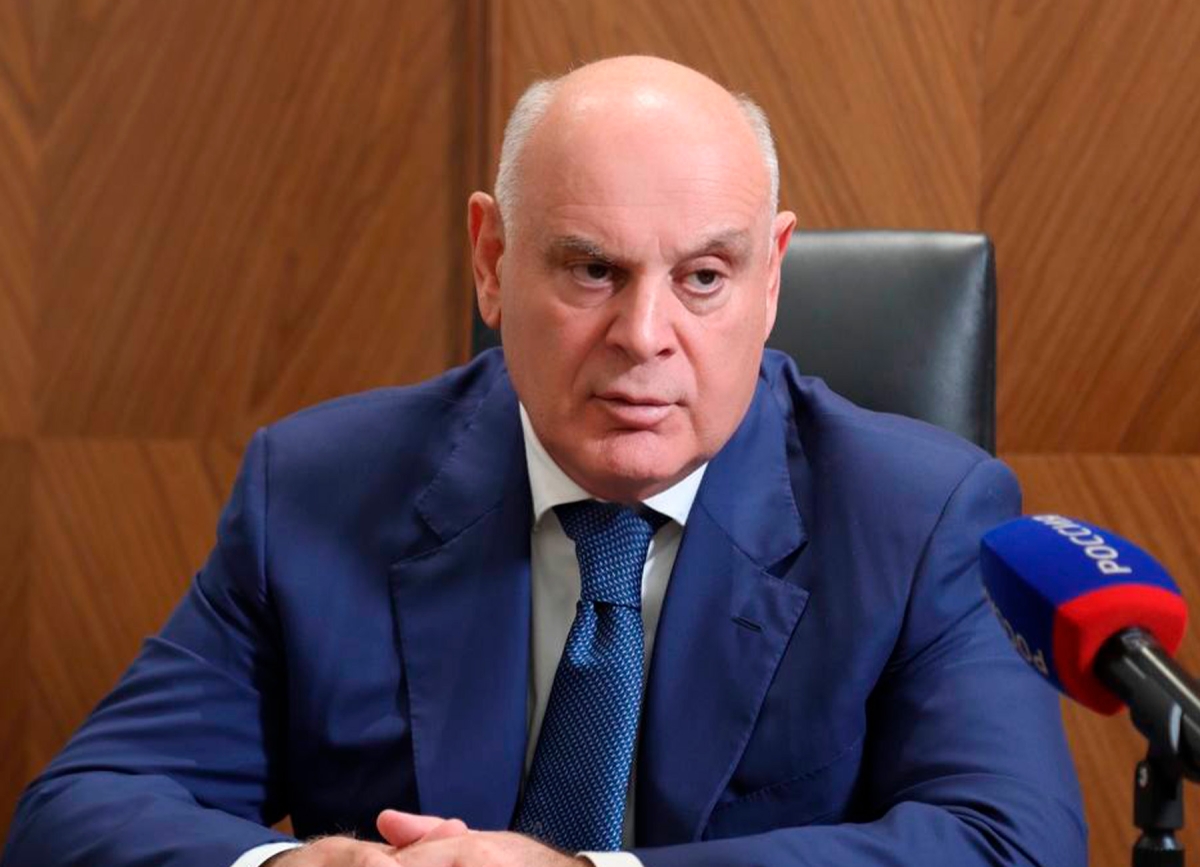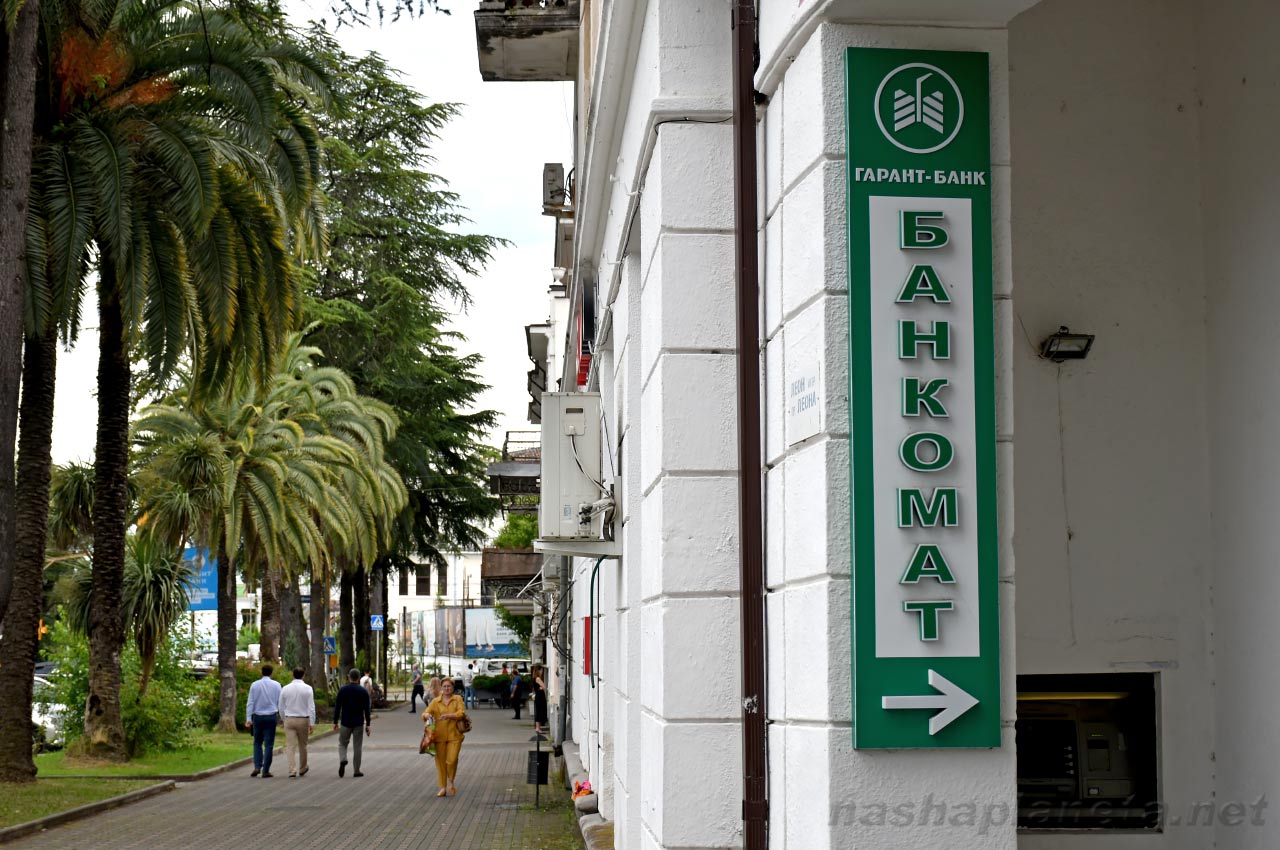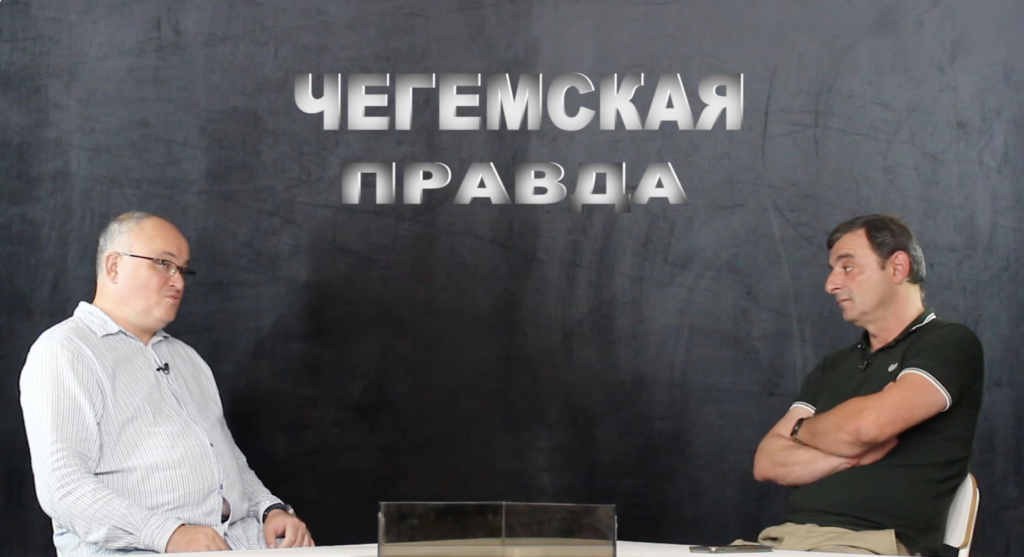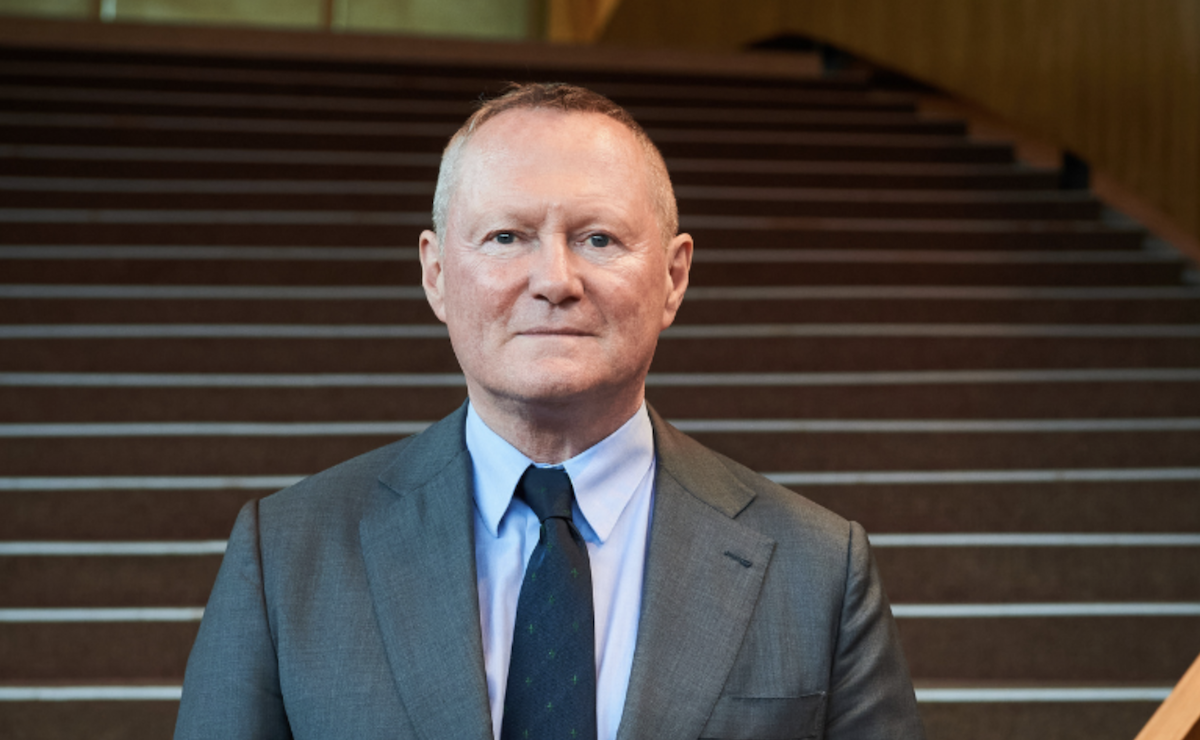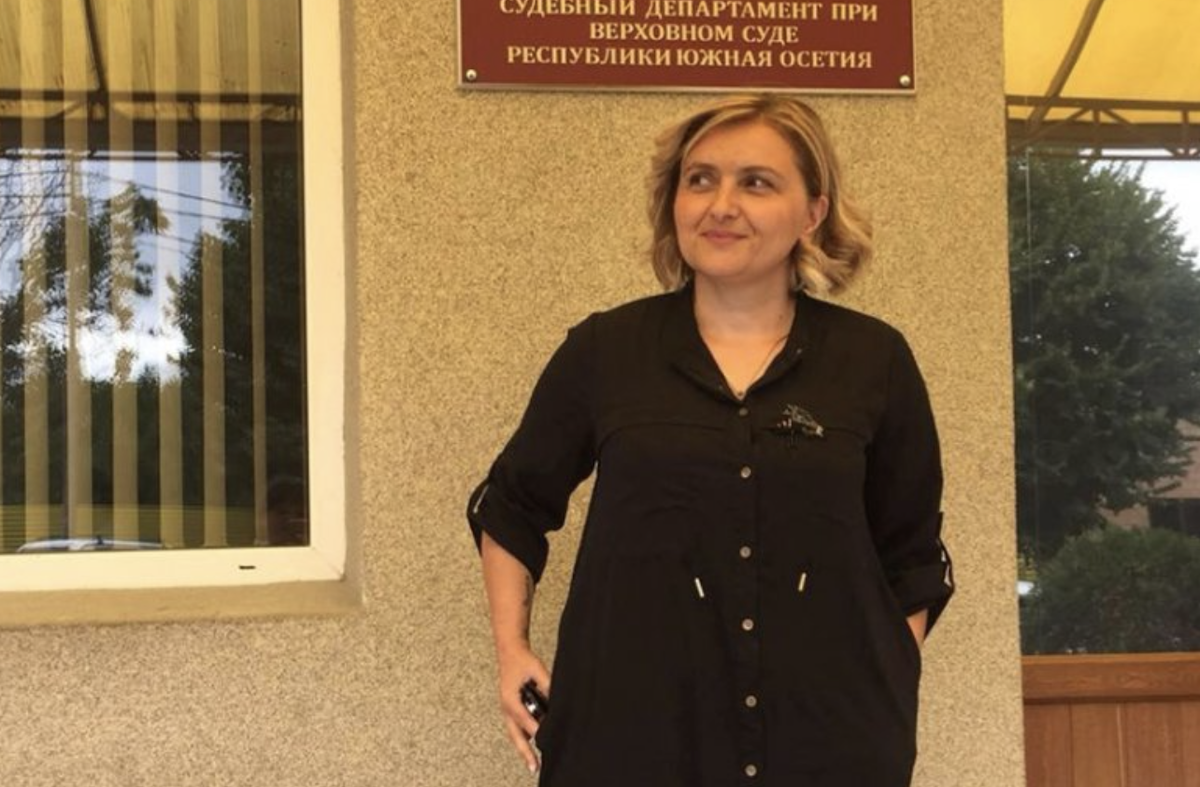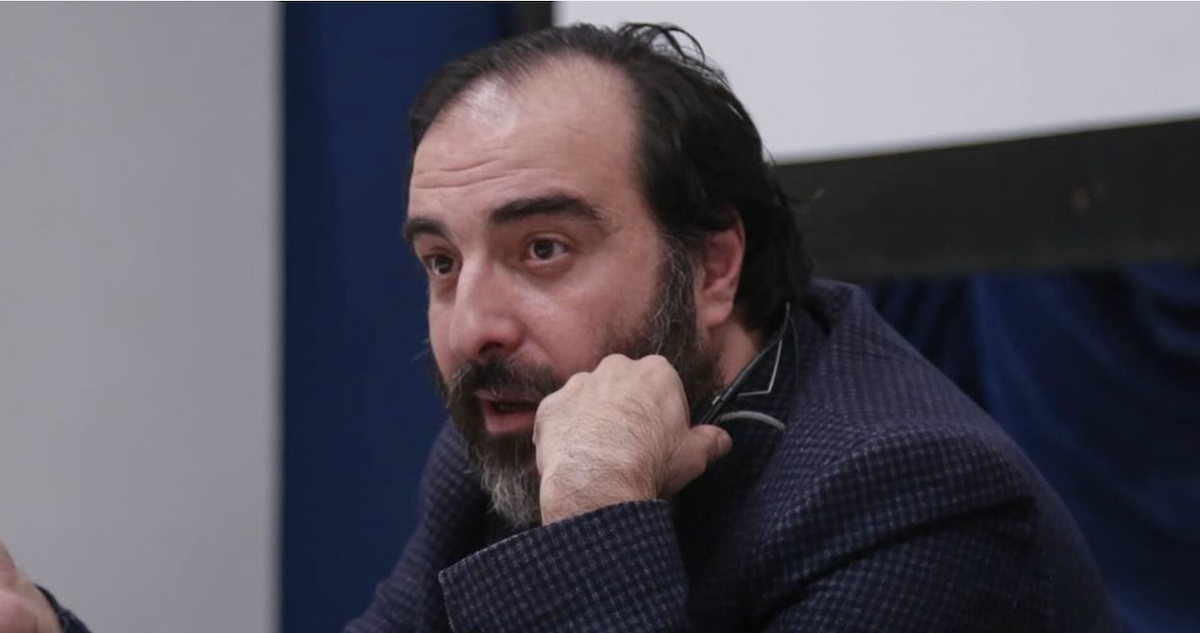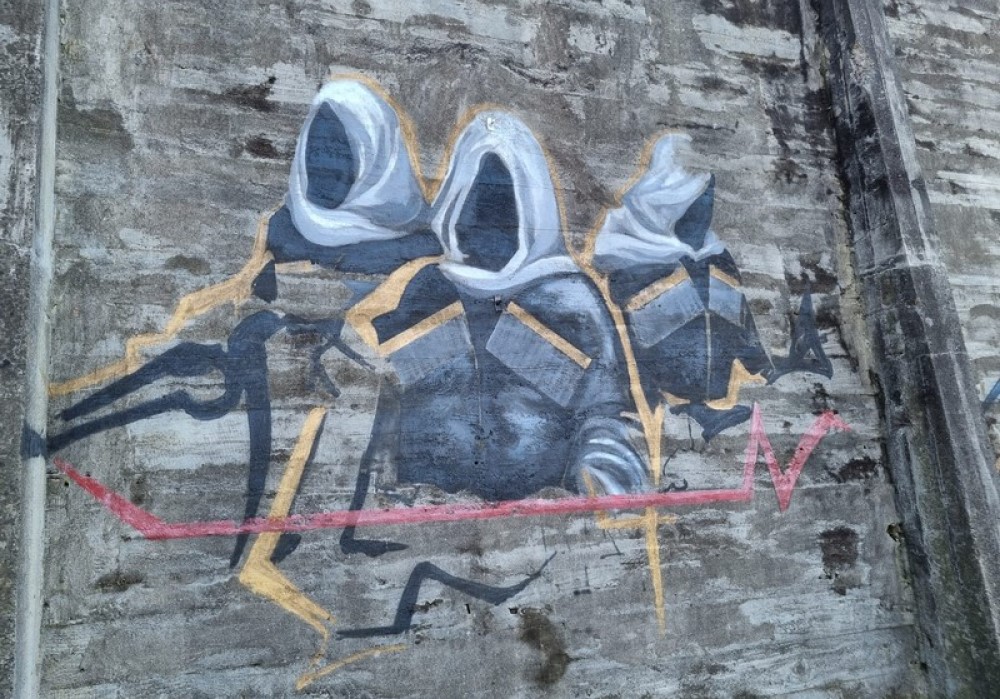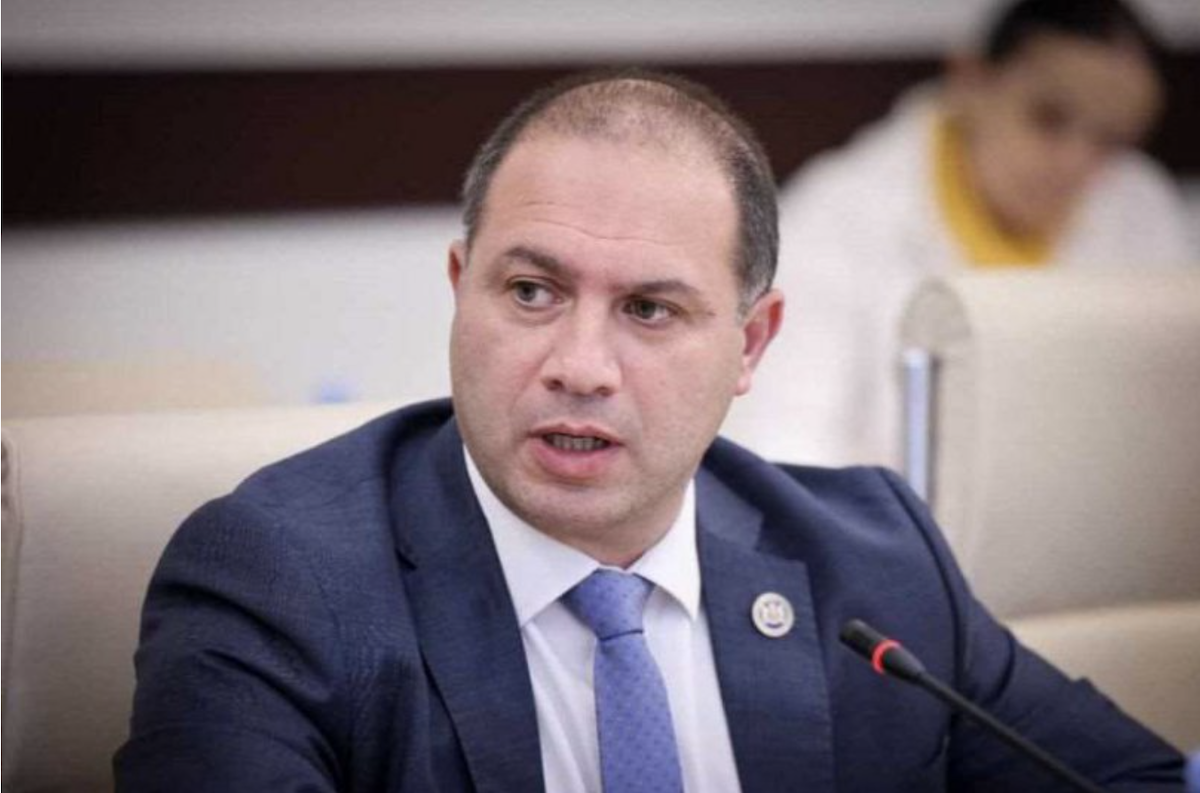Why the law on apartments is harmful to Abkhazia | Bartsits and Chkadua
Law on apartments
The guest of “An Hour” is ‘the Head of the Trade Mission’ of Abkhazia in the Russian Federation Oleg Bartsits. The guest discussed the most pressing problems, particularly the “Law on Apartments”. The host is Ibragim Chkadua.
Full text of the interview:
Ibragim Chkadua: Hello! Welcome to another episode. Today we have a very interesting guest — Oleg Bartsits, head of the trade representation of Abkhazia in the Russian Federation and a member of the Supreme Council of the Abkhaz-Abazin Congress. Good afternoon, Oleg. It’s a pleasure to have you in our studio.
Oleg Bartsits: Good afternoon.
Ibragim Chkadua: This year started off very hot, and summer has made it hotter. Last week there was a discussion about a crisis related to the potential adoption of a law on apartments. Oleg, you are one of the few leaders who has clearly expressed your stance on this law. Why did this happen, and what is your position? Could you explain in detail why you are against it? There is now a social media flash mob called “No to Apartments.” Why are you opposed?
Having your own opinion doesn’t depend on whether you hold an official position … It’s a matter of conviction.
Oleg Bartsits: I have my own opinion on this matter. Having your own opinion doesn’t depend on whether you hold an official position or are involved in creative activities. It’s a matter of conviction. You definitely don’t need to persuade me to invest in our republic. I have been dealing with such issues for a long time. Sometimes it works out, sometimes it doesn’t, for various reasons. My conviction is that no state can develop without investments.
Absolutely self-sufficient states do not exist, and tiny Abkhazia, with its vulnerable economy, needs investments. The blockade and post-war devastation have had a very negative impact on the pace of our economic development. We are interested in investments, primarily from the Russian Federation, our friendly and brotherly country that provides significant assistance.
Ibragim Chkadua: And then there’s the ruble zone for us.
As for the infamous draft law on apartments that is currently being discussed, I cannot support it.
Oleg Bartsits: Undoubtedly, we are connected by numerous ties and agreements that are vital for our sustained development. I want to note that these investments should be regulated by the state authorities of Abkhazia in cooperation with our Russian partners. We need to determine the priority areas for financial investment. As for the infamous draft law on apartments that is currently being discussed, I cannot support it. This draft law is not sufficiently developed. There has not been enough expert and public discussion preceding its adoption. People have little information, and this raises concerns about the key provisions of the law.
If serious work and discussions had been conducted before the adoption of the law, including the creation of a real estate registry, which is fundamental, it would have been a different matter. Without a registry, and without the adoption of a Building Code and territorial development plans, discussing such projects is premature. We are aware of the current infrastructural problems in all areas of Abkhazia, not only in the eastern part, including issues with electricity supply, water supply, wastewater treatment facilities, and solid waste management. Environmental issues also play a significant role. All of this makes discussing such large-scale projects premature.
Ibragim Chkadua: Perhaps one of the biggest concerns — historical demographic concerns. All the problems, starting with the migrations in the 19th century and throughout the 20th century, are related to this. It was one of the main causes of the Georgian-Abkhazian war, as demographic imbalance led to constant conflicts. Even with a close neighbor, these risks need to be considered. I have a question: you work at the Abkhazian embassy in the Russian Federation. Does your position on this law carry any risk for relations with Russia? Some politicians in Abkhazia claim that this could damage our relationship. What do you think?
Oleg Bartsits: I am convinced that there will be no consequences. Those who claim that all politicians or public figures opposing this hasty draft law become adversaries of Russia are using the rhetoric of inexperienced politicians. I don’t think so.
Ibragim Chkadua: As a journalist, I can say that this is manipulation.
Oleg Bartsits: I believe that the relationship between Russia and Abkhazia is characterized by the spirit and substance of genuine strategic alliance, partnership, and brotherly relations.
Ibragim Chkadua: Tested over the years.
This is not on the agenda of the Russian government, nor is it the position of major Russian businessmen. Russia is interested in Abkhazia as a reliable and predictable partner, and we are such a partner.
Oleg Bartsits: Both through our actions and our shared history. These relations have never been reduced to mere bargaining. Russia has never approached the issue in this way. This is not on the agenda of the Russian government, nor is it the position of major Russian businessmen. Russia is interested in Abkhazia as a reliable and predictable partner, and we are such a partner.
One of the brightest confirmations of this is our support for Russia in its struggle to create a new world order. Abkhazia sincerely provides its modest assistance. It is unfair to reduce our genuine, brotherly relations to mere bargaining. Russia has never approached the issue in this manner.
Ibragim Chkadua: And it is inappropriate. The presence of Russian military bases in Abkhazia has never caused problems. How long have they been here? It does not raise any concern or dissatisfaction because it was decided at the state level. I have another question: you are involved in economics and international relations. Is this your area of professional activity and career?
Oleg Bartsits: I would say international relations.
Ibragim Chkadua: Yes, but it’s related. I am interested in the economic aspect. You have long been dealing with the issue of waste disposal. This is a huge problem for Abkhazia. Recently, there was a fire at a landfill in the Gali district, and there are also problems with landfills in Sukhumi, Pitsunda, and Gagra that frequently catch fire. Is this a problem that can be solved?
Everything related to ecology should be a priority.
Oleg Bartsits: Firstly, this is a global problem. It’s very unfortunate, but I am already tired of talking about this issue. For many years I have been trying to address it with varying degrees of success. Sometimes we have come close to a solution. I believe this problem needs to be highlighted as a separate national project. Everything related to ecology should be a priority. Otherwise, we will have nothing to discuss in agriculture, tourism, or other areas in the near future.
Ibragim Chkadua: Transit, and so on.
Oleg Bartsits: Absolutely. Today, these problems are all-encompassing. You mentioned the landfill in the Gagra district, in Alakhadzi, which is now a toxic cloud. The scale of contamination is such that carcinogenic clouds cover nearby settlements, reaching as far as the village of Bzybta. It is spreading in the other direction as well. How are we going to develop tourism when the basic problem is not resolved? People living in the surrounding settlements breathe these emissions year-round, and illnesses are becoming more common among younger people.
The depth of soil contamination under the landfills is serious, and the problem will not go away. This issue affects not only the Gagra district but also Gudauta, Primorsky, which is now sealed off. The lighthouse and other landfills also pose a threat. This cannot be resolved with cosmetic measures.
Ibragim Chkadua: Oleg, do you monitor this situation?
Before presidential and parliamentary elections, various groups emerge, promising to solve the problem in the shortest possible time.
Oleg Bartsits: Undoubtedly. This is a very important issue, and there are many concerned citizens who, even if we were to turn away, would remind us of the problem. The scale of the threat is serious; many areas of human activity in Abkhazia are at risk. Historically, the main landfills are located in recreational zones; this was planned even before the war, during the Soviet Union. But that doesn’t make it any easier for us. If we don’t address these problems, the consequences will be dire.
Before presidential and parliamentary elections, various groups emerge promising to solve the problem in the shortest possible time. As someone deeply involved in the issue, I can distinguish reality from myth. I would like to clarify how we plan to solve this problem. It is an expensive undertaking requiring a high level of competence and specialists.
Ibragim Chkadua: It’s a complex technology.
Oleg Bartsits: Yes, it is quite complex but entirely solvable. On the one hand, it’s complex; on the other hand, it’s not rocket science. With goodwill and the right approach, together with experts and those willing to help, including from the Russian Federation, we can solve this problem. We have already brought in specialists and assessed the situation. It is feasible.
Ibragim Chkadua: So what’s the problem? Is it lack of political will or something else? We have many problems, and this is partly a rhetorical question. I understand that projects stretched over years and requiring significant expenditure do not yield immediate results. Politicians are reluctant to tackle them because everyone is currently focused on quick returns. This is a lack of a state approach to the economy. I recall that you had a presentation at the forum developed by Beslan Agrba, “25 Steps.” Was there a point about apartments?
Ecology is fundamental; it affects the health of the nation and the development of new types of businesses.
Oleg Bartsits: Yes, I remember that large-scale forum organized with the participation of the Moscow Abkhazian diaspora. A Russian expert company presented the “25 Steps” program. I was not involved in its creation, but the forum was called “Strategy 2025,” referring to the year 2025. We developed steps to optimize our economic and financial situation. And by 2025… It’s coming up soon. I gave a report and mentioned that we need to simultaneously undertake a “small deeds strategy.” I outlined four national projects: agriculture, tourism, digital development, and ecology. Apartments were not included. Ecology is fundamental; it affects the health of the nation and the development of new types of businesses.
Ibragim Chkadua: These are interrelated issues; one area affects the others.
Oleg Bartsits: Absolutely.
Ibragim Chkadua: Let’s return to the apartment law. What’s wrong with it from an economic standpoint, aside from the political aspects and public sentiment?
Oleg Bartsits: I am not politicizing this issue. I understand people’s concerns, sometimes justified, sometimes exaggerated. But I don’t see the rationale for adopting this draft law due to infrastructural difficulties. There are no wastewater treatment facilities. In the Gagra district, as in others, there are enormous problems with wastewater treatment facilities.
Ibragim Chkadua: In fact, there are no wastewater treatment facilities in any city.
Our concerns are related to the fact that we are not infrastructurally prepared for large-scale projects.
Oleg Bartsits: Yes, the situation is dire. Any natural disaster could trigger an infrastructural collapse. Flooding and other problems are a consequence of a lack of modernization and chaotic construction. Government bodies cannot effectively control the situation. Even a small disaster could lead to serious consequences. Sewage and water supply systems often fail. Water supply, wastewater management, electricity, and so on.
By the way, this is not just our problem. Today we see this in southern Russia: Yeisk, Gelendzhik, Anapa—power outages, isolated issues at the Rostov nuclear power plant. However, the problem is deeper. This also involves large-scale construction and insufficient oversight. Today the Russian government is starting to pay attention to this. These are issues of government administration and planning. Our concerns are related to the fact that we are not infrastructurally prepared for large-scale projects.
Ibragim Chkadua: Are there any examples where such projects have been successful and provided a boost to development?
Oleg Bartsits: Certainly, there are examples. For instance, the UAE profit significantly from this. But the level of preparation of their officials and government bodies is incomparable to ours. They have a system in place that is ready to administer such projects. We, on the other hand, are not infrastructurally prepared for such projects. Additionally, the economic component is not yet fully clear to me.
Ibragim Chkadua: Since the beginning of the year we have had a gasoline crisis, an energy crisis, a political crisis related to the state dacha in Pitsunda, and now a crisis with deputies and the lack of an imperative mandate. People are asking their deputies to clearly state their position on the apartment law. For me, these are all crises of the political system, management structures, and the opposition. Perhaps we should consider a new constitution or an overhaul of the existing one?
Oleg Bartsits: I approach such matters very cautiously, when it comes to talking about tectonic shifts and modernization. I handle these issues with care.
Ibragim Chkadua: I used to feel the same way, but the wave of crises has led me to believe that the current mechanism is no longer working.
In moments of crisis in our recent history, the parliament has proven to be effective.
Oleg Bartsits: I understand. You mentioned the Parliament of the Republic of Abkhazia, the People’s Assembly. Despite the trend of criticizing deputies, I see the parliament as an effective crisis-management institution, and not for the first time. In moments of crisis in our recent history, the parliament has proven to be effective.
If it weren’t for the parliament, we can only speculate how the crises would have developed. Today, I am convinced that the deputies of our parliament, the majority of whom are competent and responsible individuals, will make decisions that align with the interests of the multinational people of Abkhazia. This applies both to the current draft law and to other initiatives that raise concerns among the public. I am confident that this is the case.
Ibragim Chkadua: There are many archival clips being shown with statements from politicians. At one meeting, a deputy asked the president if there were specific investors ready to build apartments in Eastern Abkhazia. The president replied that there are none at the moment. Why the rush? Why make such decisions quickly if everything is honest and transparent? This creates a discrepancy between message and reality.
Oleg Bartsits: This indeed raises questions. If there are no investors, why rush? Why put the cart before the horse? Let’s prepare the infrastructure and the management apparatus. This is not a simple topic and is not immediately apparent. We lack a real estate registry and a management apparatus capable of designing and creating the legal and digital foundation for such large-scale projects. Who will handle this? This is a question for the future. We are all concerned with the development of the eastern regions of our country, as well as the western. Eastern Abkhazia is just as attractive and beautiful. If there are no ready projects and proposals from investors, let’s consider alternative development directions.
Ibragim Chkadua: What specific directions are you referring to?
Today we buy everything and sell nothing. Our efforts are directed towards tourism, but the revenue leaves the republic.
Oleg Bartsits: Historically, western Abkhazia was a health resort, while wastern Abkhazia was a granary and a forge. It had industrial enterprises and developed agriculture. Today it may be early to talk about large-scale production, but developing agriculture is essential. It is an undeniable priority. The effect of tourism could be greater with a developed agricultural sector. This is important for improving the standard of living in villages.
Today, we buy everything and sell nothing. Our efforts are focused on tourism, but the revenue is leaving the republic to purchase food and essential goods. The Russian Federation is our partner, but we need to develop our own raw material and production base. The foreign trade balance is 80 to 20. This situation needs to be corrected. In addition to agriculture, tourism can be developed in eastern Abkhazia. But it should be done systematically.
Ibragim Chkadua: Develop it, but not haphazardly.
Oleg Bartsits: Development is slow due to objective difficulties. In cooperation with Russian partners, we could create small-scale projects. Flagship hotels are good, but it’s also important to consider the potential operating costs. The tourism sector could also develop. To accelerate the development of eastern Abkhazia, it would be beneficial to create favorable conditions for hoteliers who are building tourist facilities, including small hotels. Taxation in this area could become a separate direction for stimulating the tourism business.
Ibragim Chkadua: After tax holidays and other measures. But protectionist policies are developing in a strange way. I forgot to mention the situation with tour guides, where there was a risk that licenses for conducting tours might be issued not only to residents of Abkhazia. This is absurd. The constant struggle and anticipation of unpleasant surprises from the authorities make the situation tense and abnormal.
Oleg Bartsits: The people, be they businessmen or ordinary people working for the good of their country, should feel the support of the state. The issue with tour guides is also concerning. We have about 1,000 people engaged in this activity, and any negative changes could affect their income and families. These people, I believe, are patriots and represent their land in an attractive and accurate light. Decisions on this matter should be made in the interests of the citizens.
Ibragim Chkadua: Oleg, as we wrap up our conversation, I’d like to touch on the election next year, without candidates as yet. There are rumors about your intentions. Can you share your plans at this time?
Oleg Bartsits: Yes, it’s no secret. My friend, ally, and someone I respect and share views with—Adgur Kakoba—and I have decided to register as candidates for the presidency and vice-presidency of the Republic of Abkhazia within the legally established deadlines. I see no need to hide this. I’ve already informed my friends and family, and he has also shared the information with those around him. This isn’t a campaign announcement but rather information for those interested. We had discussions with fellow countrymen, and the meeting was initiated at their request.
Ibragim Chkadua: In your own village?
Oleg Bartsits: Yes, in my hometown of Blabyrkhua, in the Gudauta District. Many people came and asked me questions. I don’t hide anything from friends, fellow villagers, and relatives. I announced that there is a plan, a decision has been made, and we will be registering and participating in the 2025 presidential elections.
Ibragim Chkadua: Great. I recently wrote on social media that the political landscape of Abkhazia looks bleak. If we have candidates like you, I am ready to take my words back. Thank you for coming. I hope we can talk again when you officially register as a candidate, and possibly with your vice-presidential candidate.
Oleg Bartsits: I would be happy to.
Ibragim Chkadua: It’s interesting that you are running for election again. You already have experience from previous presidential elections. I have been following our elections, and your team stood out for running a campaign with dignity, without mudslinging or anonymous leaks. I hope the election battle will be just as civilized and by the book.
We chose to say more about what we intended to do, rather than about how bad our opponents are.
Oleg Bartsits: Thank you for your evaluation of our past campaign. In 2019 Oleg Arshba and I, along with Alexander Ankvab who supported us at the time, agreed that although the goal of any political force is to come to power, our objectives were somewhat different. We decided that we would not strive for victory at any cost. We conducted our campaign according to our principles of dignity and decency, without slander We chose to say more about what we intended to do, rather than how bad our opponents are. This is how we plan to run our future campaign as well.
Ibragim Chkadua: This is indeed a bit of a sensation, and journalists always appreciate such news. Thank you again. I hope we will see not only you but other candidates as well. It would be interesting to interact with the main candidates if they are interested. Thank you.
Oleg Bartsits: All the best.
Ibragim Chkadua: I think people are looking forward to new faces on the political scene. To be honest, I am also looking forward to civilian candidates because we are a bit tired of generals. It’s probably better to build a new world with civilians.
Oleg Bartsits: That’s a philosophical question, in my opinion.
Ibragim Chkadua: Thank you, all the best. We had Oleg Barcits as our guest. This has been “One Whole Hour”.
Terms, place names, opinions and ideas suggested by the author of the publication are her / his own and do not necessarily coincide with the opinions and ideas of JAMnews or its individual employees. JAMnews reserves the right to remove comments on posts that are deemed offensive, threatening, violent or otherwise ethically unacceptable.










